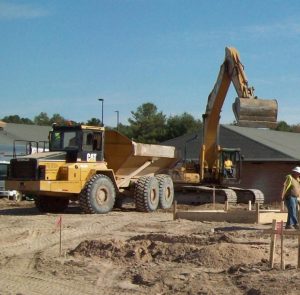
To be clear: Employees generally cannot sue their employers for work-related injuries. The exclusivity provision of Florida’s workers’ compensation law stipulates that workers’ compensation is the sole remedy for injured and ailing workers harmed on-the-job. However, some courts have ruled this exclusivity provision doesn’t apply to claims of spoliation of evidence, which are separate from workers’ compensation claims. Neither do exclusivity provisions apply to third parties. This is important because third party claims, while typically more challenging than workers’ compensation cases, can be far more lucrative. That’s because workers’ compensation does not allow a plaintiff to collect for damages such as pain and suffering, mental/ emotional anguish or loss of consortium. Third-party claims do.
Spoliation of evidence occurs when one party intentionally destroys, loses, withholds, alters, hides or fabricates evidence that is relevant to the legal proceeding at hand.
Some examples of spoliation of evidence on a job site:
- Erasing work time logs or general ledgers.
- Destroying work orders.
- Destructive testing of equipment/ machines involved in the accident.
- Scraping accident equipment.
- Losing work orders that showed costs, production, quotes and pricing.
- Confiscating and then losing equipment alleged to have failed.
In the recent case of Schaefer v. Universal Scaffolding & Equipment, plaintiff was injured when a metal beam fell on his head as he was helping to erect scaffolding sought compensation from a third party. According to documents from the U.S. Court of Appeals for the Seventh Circuit, worker was employed by a contractor hired to erect scaffolding on site at an energy plant. However, the components of the scaffolding, supplied by a third party, were proving a serious problem. Several of the pieces were too small and they didn’t lock properly into place. A supervisor ordered the defective pieces set aside and the work continued.
Then one day in November 2008, while plaintiff was helping on the scaffolding job when a three-foot bar popped out of one of its cups and fell onto decedent’s head, seriously injuring him. He successfully filed for a workers’ compensation claim. He later filed a claim against the product manufacturer/ supplier, but then it was revealed the actual beam that struck him was missing. It had been lost by power plant employees. Plaintiff filed a separate injury lawsuit for spoliation of evidence.
District court granted summary judgment to defense on the grounds that without that lost piece of equipment, plaintiff couldn’t prove he would have won his case and therefore, he couldn’t show he’d suffered any loss by defendant’s failure to preserve it.
The 7th Circuit reversed on the spoliation issue. Although the court disagreed with plaintiff that he had sufficient evidence to prove the bar was defective (the mere fact an accident occurred doesn’t establish causation), the court did find plaintiff had sufficient evidence of negligent spoliation. That is, a reasonable jury could find there was:
- A duty to preserve that evidence;
- A breach of that duty by loss of evidence;
- The loss proximately causing plaintiff’s inability to prove his claim;
- Actual damages resulting.
If you have been injured in a construction accident, our experienced Miami injury lawyers can help.
If you have been a victim of a traffic accident, call Chalik & Chalik at (954) 476-1000 or 1 (800) 873-9040.
Additional Resources:
Schaefer v. Universal Scaffolding & Equipment, Oct. 7, 2016, U.S. Court of Appeals for the Seventh Circuit
More Blog Entries:
Product Liability Lawsuit Alleges Apple Had Tech to Prevent Distracted Driving, Oct. 1, 2016, Miami Injury Lawyer Blog
The post Schaefer v. Universal Scaffolding – Spoliation of Evidence in Construction Accident Lawsuit first appeared on SEONewsWire.net.]]>
Sifting through which policies are applicable involves first identifying them all and then carefully combing through the contracts to ascertain how liability payments were structured. We may also need to know research out-of-state laws if the companies involved were based elsewhere, as is often the case. Most commercial truck insurance policies will be much higher than what you will see for passenger-style vehicles. That’s because typically, when these trucks are involved in crashes, the damage is often severe. Although large trucks aren’t involved in as many crashes as passenger vehicles, when they are involved in a crash, losses can be devastating.
In the recent case of Great West Cas. Co. v. Robbins, the question before the U.S. Court of Appeals for the Seventh Circuit was whether the commercial liability policy that covered the lessor and lessee of the trailer part of the truck – a $5 million policy – was available to cover an allegedly negligent driver and her employer, who owned the trailer. The driver and her employer were insured by a separate policy that carried a $1 million bodily injury liability limit.
This was a truck accident wrongful death lawsuit stemming from a horrific crash that killed a 44-year-old man in Indiana in January 2011. The trucker, who according to court records worked for a company called Hoker Trucking, LLC, was cited for failure to yield. Hoker is an Iowa company, and it owned the tractor being driven. The driver, the company and the tractor were insured with a $1 million policy provided by Northland Insurance Company. However, the trailer was being loaned by a Minnesota-based firm called Lakeville Motor Express, Inc., which didn’t actually own the trailer, but had been leasing it from a company called Wren Equipment, also a Minnesota company. Per the agreement between Lakeville and Wren, Lakeville secured a $5 million liability policy from a company called Great West Casualty Co. that covered itself and Wren and the trailer.
Neither the truck driver nor her employer were named insureds under the Great West policy.
Plaintiff, the widow of the man killed in the truck accident, filed a lawsuit alleging negligence on the part of the driver, the driver’s employer and Lakeville, the lessee of the trailer. Lakeville was later dismissed from the lawsuit. The question became whether Great West should have to indemnify – and ultimately be responsible for the negligence of – the driver and her employer. The 7th Circuit, applying Minnesota law, decided: No.
The court found no ambiguity in the policy that might construe it against the insurer. The policy expressly excludes “anyone who has leased, rented or borrowed your auto when it is used in a business other than yours.” Because the truck was not being used to further Lakeville’s business at the time, no coverage was provided.
If you have been a victim of a traffic accident, call Chalik & Chalik at (954) 476-1000 or 1 (800) 873-9040.
Additional Resources:
Great West Cas. Co. v. Robbins, Aug. 16, 2016, U.S. Court of Appeals for the Seventh Circuit
More Blog Entries:
Tundidor v. Miami-Dade County – Canal Doesn’t Fall Under Maritime Law in Negligence Case, Aug. 15, 2016, Miami Truck Accident Attorney Blog
The post Great West Cas. Co. v. Robbins – Truck Accident Insurance Dispute Weighed by 7th Circuit first appeared on SEONewsWire.net.]]>
Perhaps this shouldn’t be too surprising considering that nearly 80 million American households have pets and, at the end of the day, dogs are animals. Even those that are well-trained and relatively predictable can have moments of behaving in a way that is unexpected or aggressive. Here in Florida, F.S. 767.04 says that victims of dog bites or other dog-related injuries don’t have to prove the dog was previously vicious or that the owner knew of this viciousness in order to collect damages. It is true that any negligence on the part of the person bitten could be used as a means to reduce the dog owner liability, but it won’t preclude the claim entirely.
Given how many homeowner insurance claims stem from incidents involving dogs, many home insurance companies are trying to find ways to reduce their losses. They are fighting back hard on these claims.
One such case recent case is that of Am. Family Mut. Ins. v. Williams, weighed not long ago by the U.S. Court of Appeals for the Seventh Circuit.
According to court records, plaintiff was staying with a college friend and his wife in October 2012. The couple lived in an Indiana suburb and, like many people, they had a dog. One day, while the homeowner couple had to go to work, they left their guest at home with the dog. They told their guest that the dog would be fine inside while they were away. However, if she wanted to go outside, she would ring a bell by the front door and he could simply let her out. They made no mention of walking her.
A few hours later, shortly before 11 a.m., plaintiff was watching television when he heard the dog scratch on the bedroom door. We went downstairs, put a leash on her collar and walked outside with her. There was no incident and both returned inside. About an hour later, he heard the doggie bell ring by the front door. He went downstairs again and found the dog whining by the front door. Once again, he grabbed the leash and took the dog outside.
All of the sudden, another dog barked. When his host’s dog heard this bark, she lunged toward it. Because plaintiff was still holding onto the leash, he was pulled to the ground, resulting in a serious personal injury to his shoulder that required surgery.
He later sued the homeowners. Now, something to point out here: Some people are hesitant to file lawsuits against their friends or family members or even acquaintances. But what they usually come to realize is that it’s not that individual from whom they are trying to collect. Rather, it is the insurance company. But it is only after the insured is found liable can the injured person collect and receive reimbursement for his or her medical bills.
In this case, the insurer attempted to argue that the plaintiff guest was an “insured” under the terms of the policy because he was deemed “responsible” for the dog in this case.
However, the district court rejected this assertion and insisted the insurer had a duty to indemnify the homeowners – meaning provide a defense and pay the claim if they were deemed liable. The Seventh Circuit affirmed, finding it would “make no sense” to treat the plaintiff in this case as if he were legally responsible for his own injuries resulting from the actions of the dog.
If you have been a victim of a traffic accident, call Chalik & Chalik at (954) 476-1000 or 1 (800) 873-9040.
Additional Resources:
Am. Family Mut. Ins. v. Williams, Aug. 8, 2016, U.S. Court of Appeals for the Seventh Circuit
More Blog Entries:
Lik v. L.A. Fitness – Gym Injury Lawsuit to Proceed, June 9, 2016, Miami Dog Injury Lawyer Blog
The post Am. Family Mut. Ins. v. Williams – Insurer is Required to Indemnify Homeowners for Dog Injury first appeared on SEONewsWire.net.]]>We all know that barely scratches the surface of losses incurred in a serious Miami car accident. That’s why a lot of motorists and vehicle owners choose additional insurance to cover themselves (uninsured/ underinsured motorist coverage) and to cover other parties’ losses if they are sued. One form of additional liability insurance that may be available is called excess insurance. Excess policies provide specific coverage above an underlying limit of primary insurance. Excess policies don’t broaden the scope of the underlying coverage, but they do increase the amount of coverage available to compensate for a loss.
The recent case of Cincinnati Ins. Co. v. Estate of Chee, before the U.S. Seventh Circuit Court of Appeals, is a case in which the applicability of one’s $5 million excess insurance policy is at issue. This case was made even more complex by the fact that it involved a wife’s estate suing her surviving husband for negligence and doctors for medical malpractice. The doctors then filed a third-party action against the husband, seeking contribution should they be deemed liable. Then the husband sought indemnification from the excess insurance policy held by both himself and his wife.
It’s important to point out it is not all that unusual for spouses, relatives, friends and other loved ones to sue each other in court following a car accident. The goal is not actually to collect money or assets from that individual, but rather to stake claim to corresponding insurance benefits.
According to court records, the crash at issue occurred in August 2010. Decedent wife was in the passenger seat. She had just given birth three weeks earlier. Her husband was behind the wheel. He crashed into a tree.
The wife reportedly told paramedics her husband, a radiologist, had purposely removed her seat belt and crashed into a tree. While she was hospitalized, she recanted that statement. However, after she was transported to the hospital, the 39-year-old computer programmer’s condition deteriorated. She went into cardiac arrest and was on a ventilator. She ultimately died a week later when a blood clot from her left leg traveled to her lung. Police investigated, but later found no evidence of husband’s wrongdoing.
Wife’s estate filed two lawsuits in Illinois (where all this happened) – one against the husband for negligent driving and another against the hospital and attending physicians, accused of medical malpractice. Defendants filed a third-party action against husband and husband sought indemnification from excess insurer. The excess insurer sought a declaratory judgment that its policy did not apply. The district court did not agree, and ordered the insurer to indemnify the husband. The Seventh Circuit affirmed.
The excess insurer had argued it did not receive prompt notice of its potential involvement. In fact, the wife’s estate notified the insurer after 16 months via broker while the husband’s legal team notified the insurer after 26 months. The court conceded this was not “as soon as practicable” after decedent died, but the insurer did not identify any concrete prejudice that resulted. That meant the delay did not affect insurer’s duties.
The excess insurer also argued that the primary insurer in this case was already defending the insured and it was entitled to sit on the sidelines – with no involvement in the legal proceedings – until the primary insurer writes a check. However, the court found this was not what the policy promised.
Now the two cases will proceed.
If you have been a victim of a traffic accident, call Chalik & Chalik at (954) 476-1000 or 1 (800) 873-9040.
Additional Resources:
Cincinnati Ins. Co. v. Estate of Chee, June 13, 2016, U.S. Court of Appeals for the Seventh Circuit
More Blog Entries:
Tire Tread Blamed in Crash that Killed Four Sisters, June 14, 2016, U.S. Court of Appeals for the Seventh Circuit
The post Cincinnati Ins. Co. v. Estate of Chee – Seventh Circuit Requires Excess Insurer to Indemnify in Wrongful Death Lawsuit first appeared on SEONewsWire.net.]]>